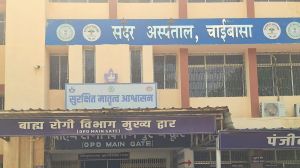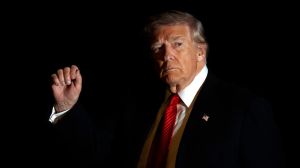Vote and a prayer
WHEN former chief minister A.K. Antony fought a crucial assembly byelection from Tirurangadi in 1995, he openly sought the support of the Pe...

WHEN former chief minister A.K. Antony fought a crucial assembly byelection from Tirurangadi in 1995, he openly sought the support of the People8217;s Democratic Party PDP. The PDP was founded by Abdul Nasser Madhani after his Islamic Sevak Sangh was banned in 1992. Antony justified his wooing of Madhani, claiming that by associating with a mainstream party like the Congress the demagogue would turn democrat.
Barely three years later, Madhani was arrested on charges of abetting the Coimbatore bomb blast that killed 46 people. He is still in jail.
The Marxists are no less guilty of riding piggyback on fundamentalist elements whenever necessary. Their seemingly stunning win in Manjeri 8212; a Malappuram pocket borough of the Indian Union Muslim League 8212; in the 2004 Lok Sabha election loses much of its shine if the costs are appreciated.
The Left8217;s main vote gatherer was the Sunni Party led by Kanthapuram Abubacker Musaliar. This is an extremely conservative group that attacks the Muslim League for not opposing the Babri Masjid demolition strongly enough. It is opposed even to Muslim women praying in mosques.
CONGRESS opportunism, by being indiscriminate 8212; Antony8217;s pendulum swung to the other end when, in 2003, he allowed the VHP to conduct its Trishul Diksha programme in Kerala 8212; sort of evens out. The Left position, which considers minority communities as 8216;8216;natural allies8217;8217;, complicates the issue.
8216;8216;Condemning fundamentalisms of all kinds is a fetish with the Left in Kerala,8217;8217; says noted political analyst K.S. Radhakrishnan, 8216;8216;but in practice they are prejudiced against the majoritarian variety.8217;8217; This has the unintended consequence, he argues, of weakening moderate Muslims in their struggle against hardliners.
The relatively low threshold of Hindu-Muslim conflict in Kerala masks another disturbing reality 8212; that there is no real firewall between the mainstream Muslim elite and militants.
Unlike any other Indian state, in Kerala a single party under a communal label 8212; the Muslim League 8212; has near-monopoly over Muslim votes. Given the state8217;s coalition politics, this has allowed the League to maximise advantages. However, the moment its privileges are seriously threatened, the League does not hesitate to back fundamentalists.
THIS was evident following the Marad massacre and in the tacit support the party gives to militant networks in Malappuram. 8216;8216;Moderate and militant, they are sides of the same coin where the League is concerned,8217;8217; says novelist M.P. Mohammed, who received death threats for opposing the ban on The Satanic Verses and for espousing a uniform civil code.
8216;8216;There is a Malayalam proverb,8217;8217; he tells you, 8216;8216;that says, 8216;Depending on situations, the musaliar mullah raises or rests his staff8217;. It is all a corruption of faith. They take things out of the Koran to suit their purpose.8217;8217;
But there are elements within the League who want to turn their back on the militants before it is too late. Says P.U. Muneer in Kochi, 8216;8216;Look at Marad. The NDF showed what it can do by carrying out the daring attack. But what about the consequences? Hundreds of ordinary Muslim families have fled the area fearing retaliation. They live as refugees in their own district.8217;8217;
- 01
- 02
- 03
- 04
- 05































